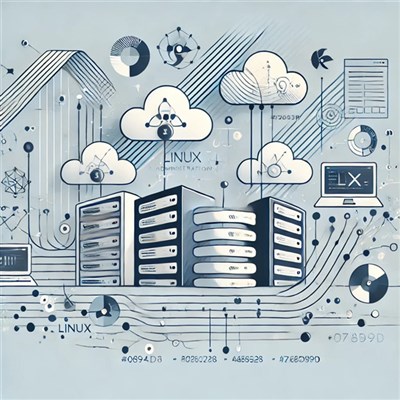.jpgL.jpg)
As the digital age continues to evolve, businesses across the globe are leveraging innovative technologies to enhance their operations. One such technology that has been a game-changer is the Microsoft Exchange Server. This server, which powers the email infrastructure of many organizations, offers a wealth of benefits and features. To make full use of these features, businesses are increasingly investing in Microsoft Exchange Server courses and Exchange Server classes.
Microsoft Exchange Server has been at the forefront of email solutions for enterprises for over two decades, offering powerful features that not only enhance email management but also improve security and collaboration. In this blog, we will explore the key features and benefits of Microsoft Exchange Server and explain why it is a leading choice for organizations worldwide.
What is Microsoft Exchange Server?
Microsoft Exchange Server is an enterprise-level email, calendar, and collaboration platform designed to facilitate communication and information sharing across an organization. It is primarily known for managing email, but it also offers a suite of collaboration tools such as calendars, contacts, tasks, and more. Exchange Server can be deployed on-premises or as part of a hybrid solution alongside cloud services like Office 365 (now Microsoft 365).
The platform is highly scalable, making it suitable for organizations of all sizes, from small businesses to large enterprises. Whether your organization has hundreds or thousands of users, Microsoft Exchange Server provides the reliability and performance needed to support complex communication requirements.
Key Features of Microsoft Exchange Server
1. Email Management and Customization
One of the core features of Microsoft Exchange Server is its ability to manage large volumes of email efficiently. With a centralized system, organizations can handle email communications across multiple users and departments. Some key email management features include:
- Mailbox Storage: Exchange Server allows for large mailbox sizes, ensuring that users can store a vast amount of email without worrying about space limitations.
- Mail Routing and Delivery: Exchange Server ensures that emails are delivered quickly and reliably, managing internal and external email routing.
- Email Archiving and Retention: Built-in email archiving features allow organizations to store older emails in a secure, easily accessible location. Administrators can set retention policies to ensure compliance with legal and business requirements.
- Outlook Integration: Exchange Server integrates seamlessly with Microsoft Outlook, offering a familiar and user-friendly interface for managing email, calendars, and contacts.
2. Calendar and Scheduling Tools
In addition to email, Microsoft Exchange Server provides advanced calendar and scheduling tools to improve team coordination and productivity. Features include:
- Shared Calendars: Exchange Server allows team members to share calendars, making it easier to schedule meetings and coordinate tasks across the organization.
- Appointment Scheduling: Employees can create and manage appointments, set reminders, and send meeting invitations, all from within the Exchange Server platform.
- Resource Booking: Exchange Server supports the booking of shared resources such as meeting rooms and equipment, ensuring that these assets are used efficiently.
3. Collaboration and Communication
Microsoft Exchange Server enhances collaboration by providing a range of tools that facilitate seamless communication within teams and across departments. Some notable collaboration features are:
- Unified Messaging: Exchange Server integrates with Microsoft Teams and other communication tools to provide a unified experience for email, instant messaging, voice mail, and calendar scheduling.
- Public Folders: These folders allow users to share documents, emails, and other information, fostering collaboration within teams. Public folders are organized in a centralized location, making it easy for users to access and contribute to shared content.
- Tasks and Notes: Exchange Server enables users to create and assign tasks, track progress, and set reminders. It also supports note-taking features for individual or shared use.
4. Security and Compliance
Security is a major concern for any organization, and Exchange Server provides a comprehensive suite of security features to protect email communications and sensitive data. Key security features include:
- Data Loss Prevention (DLP): Exchange Server includes DLP policies that prevent sensitive information from being shared via email. Administrators can create rules that detect and block the transmission of confidential data, ensuring compliance with regulations such as GDPR, HIPAA, and others.
- Encryption: Exchange Server supports email encryption, ensuring that messages are protected from unauthorized access both in transit and at rest. Secure/Multipurpose Internet Mail Extensions (S/MIME) and Transport Layer Security (TLS) are commonly used encryption protocols.
- Antivirus and Anti-Spam Protection: Exchange Server integrates with Microsoft's security features to provide advanced protection against viruses, malware, phishing attacks, and spam. The built-in Exchange Online Protection (EOP) helps to filter and block malicious emails before they reach the users' inboxes.
- Multi-Factor Authentication (MFA): To enhance account security, Exchange Server can be configured with multi-factor authentication, requiring users to verify their identity with multiple forms of credentials.
5. Mobile Access and Synchronization
With the rise of remote work and mobile employees, access to email and collaboration tools on the go is essential. Microsoft Exchange Server offers full support for mobile devices, enabling users to stay connected from anywhere. Features include:
- Exchange ActiveSync: This protocol allows users to synchronize their emails, calendars, contacts, and tasks with mobile devices such as smartphones and tablets. Exchange ActiveSync ensures a seamless experience across all devices.
- Outlook Mobile: The Outlook app provides an optimized interface for mobile users, enabling them to access their Exchange Server accounts on the go. It supports the same functionalities as the desktop version, including email management, calendar scheduling, and contact syncing.
6. Scalability and Flexibility
Microsoft Exchange Server is designed to grow with your organization, making it highly scalable. Whether you are a small business or a large enterprise, Exchange Server can handle the increasing demands of your business. The server can support thousands of users, allowing you to add new mailboxes as your organization expands.
Exchange Server also offers deployment flexibility. You can choose to deploy it on-premises, in a hybrid configuration with cloud services like Microsoft 365, or fully in the cloud. This flexibility allows organizations to select the model that best fits their IT infrastructure and business needs.
Benefits of Microsoft Exchange Server
1. Improved Productivity
Exchange Server’s robust email, calendar, and collaboration features ensure that teams can work more efficiently. By offering integrated tools such as shared calendars, tasks, and unified messaging, employees can easily coordinate with one another, reducing communication barriers and improving overall productivity.
2. Enhanced Security
With advanced security features such as DLP, encryption, and multi-factor authentication, Exchange Server ensures that sensitive data is protected from unauthorized access and cyber threats. This makes it a valuable asset for organizations dealing with confidential or regulated information.
3. Cost Efficiency
While setting up an on-premises Exchange Server may require initial capital investment, it can be more cost-effective in the long term for large organizations. It provides full control over data and server management, reducing dependency on external service providers. Additionally, Exchange Server offers scalable storage and mailbox management, ensuring that organizations pay only for what they use.
4. Seamless Integration with Microsoft Ecosystem
One of the key advantages of Exchange Server is its seamless integration with the Microsoft ecosystem, including tools like Outlook, Teams, and SharePoint. This allows for a unified user experience across various platforms and devices, streamlining communication and collaboration processes.
5. Customizability and Control
For organizations with specific business requirements, Microsoft Exchange Server offers high levels of customization. IT administrators have complete control over the environment, allowing them to configure settings, security protocols, and data management policies to meet their unique needs.
Microsoft Exchange Server Courses at Koenig Solutions
Koenig Solutions, a leading IT training company, offers a range of courses designed to help you understand and leverage the power of the Microsoft Exchange Server. Whether you're a beginner or an experienced professional, Koenig's courses can help you enhance your skills and knowledge.
So, enroll in a Microsoft Exchange Server course at Koenig Solutions today and take a step closer to becoming a Microsoft Exchange Server expert.







COMMENT